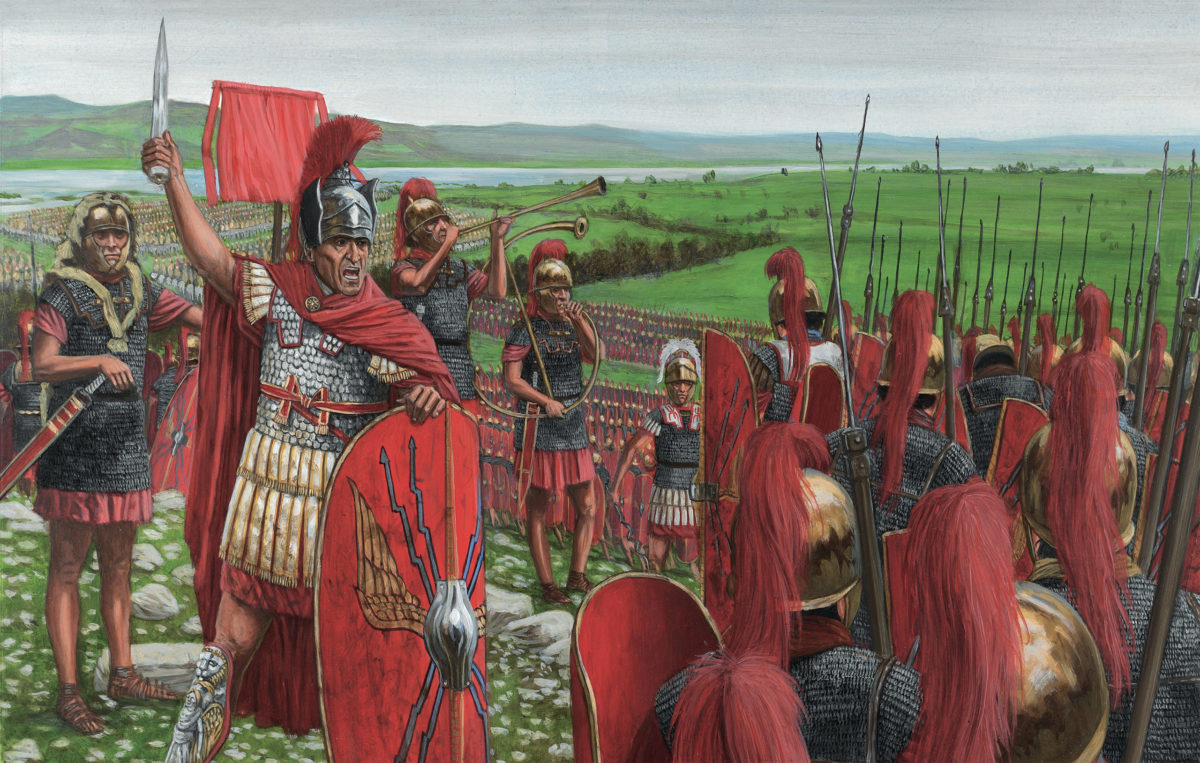Ancient Rome was blessed with many great military leaders over its long, tumultuous and often glorious history. In the 1st century BC in particular the republic had more than its fair share of praiseworthy commanders. In the shadow of such giants as Julius Caesar and Pompey the Great, however, other notable Romans and their accomplishments vanished from popular memory.
One such Roman was Lucius Licinius Lucullus. The grandson of a consul and son of a praetor, he descended from a family of nobles accustomed to power. Lucullus was expected to do great things. Though he delivered on those expectations, his life was ultimately overshadowed by other, greater contemporaries. Among them was general and statesman Lucius Cornelius Sulla, whom Lucullus loyally served over the first half of his political career. Sulla in turn held his young protégé in such high esteem that he dedicated his memoirs to Lucullus. Yet, only after Sulla’s death did Lucullus have a brief period in the sun before being cast aside by scheming Senators in Rome.
In late 74 BC the Senate learned that Mithridates VI Eupator, king of Pontus, was planning to war against Rome in Asia Minor (encompassing most of present-day Turkey). That year Mithridates’ long-standing nemesis Nicomedes IV of neighboring Bithynia died without an heir. In a last act of defiance Nicomedes had bequeathed his kingdom to Rome, the Senate quickly voting it as a new province. Other contested realms in the region included Cappadocia, Cilicia, Galatia, Lycia, Phrygia and Pontus. Neighboring Armenia would also play a role in the coming war.
The ever ambitious Mithridates, who claimed descent from both Cyrus the Great and Alexander the Great, never passed up an opportunity to expand his territory. Sometimes referred to as the “Poison King,” he reportedly became so suspicious of betrayal that he self-administered small doses of every known poison until building up immunity to them. The latest war Mithridates was planning—known to history as the Third Mithridatic War—would not mark the first time he’d grappled with the Romans in Asia Minor. During the First Mithridatic War (89–85 BC) the covetous king had invaded neighboring realms and sought to inflame Athens and most other Greek city-states against Roman rule before Sulla forced him to abandon his gains and return to Pontus. In the Second Mithridatic War (83–81 BC) Lucius Licinius Murena, Sulla’s legate in Asia Minor, had waged an unauthorized pre-emptive campaign against Mithridates that ended with Murena’s recall to Rome and a return to the status quo.
A small kingdom on the southern shore of the Black Sea, Pontus varied greatly in size depending on its opportunistic ruler’s fortunes. At the height of his power Mithridates briefly controlled most of Asia Minor and much of the seacoast. But he was never able to consolidate his gains, as the Romans kept shoving him back into his box in Pontus.
In truth, Rome was partly to blame, having mismanaged its provinces in the region. For years corrupt senators had allowed unscrupulous moneylenders and tax collectors to burden the local populace with high taxes and interest rates. Local sentiment against Rome had reached such depths that when Mithridates invaded, most provinces welcomed him with open arms. Exploiting that discontent, and recognizing Rome was preoccupied with ongoing efforts to rid Spain of Sertorian rebels, Mithridates decided to invade Bithynia.
The acquisitive king surreptitiously stockpiled weapons and supplies, and built numerous ships in preparation for his showdown with Rome. According to the Greco-Roman historian Appian, Mithridates recruited approximately 140,000 infantry and 16,000 horse, while Appian’s contemporary Plutarch recorded a similar estimate of 120,000 infantry (armed with broad swords and large shields in Roman fashion), 16,000 horse and some 100 scythed chariots (fitted with blades extending from each wheel hub). Though Mithridates was justly famed for his great wealth, his ability to raise, equip and feed such a massive army seems implausible. Regardless of exact numbers, however, Mithridates doubtless fielded a far larger army than the forces Lucullus was able to muster.
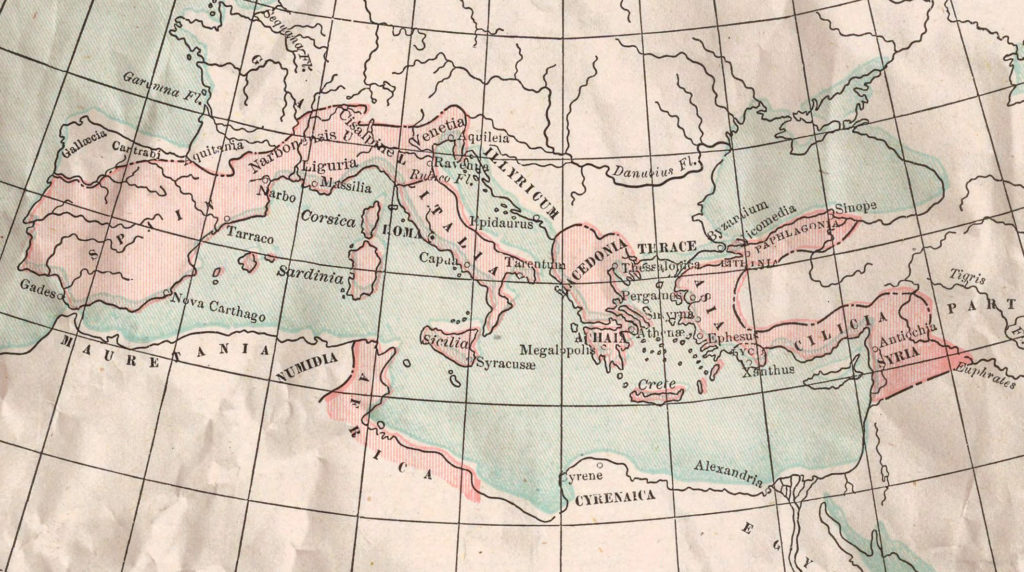
Meanwhile, the sudden death of the Cilician governor left a proconsular vacancy to fill in Asia Minor. With an eye to the brewing war with Mithridates, the Senate sought someone with military experience. With Pompey busy warring against Sertorius in Spain, Lucullus was the clear choice for the job.
Tasked with helping Lucullus wage war against Mithridates was Marcus Aurelius Cotta, his fellow consul of 74 BC. The Senate sent Cotta with a fleet to Bithynia, straddling the Black Sea and the Propontis (present-day Sea of Marmara) west of Pontus, while Lucullus was sent to govern Cilicia, south of Pontus. Cotta stationed the fleet at the fortified port city of Chalcedon, at the mouth of the Bosporus Strait, to block Mithridates’ fleet. With their enemy ostensibly pinned in place, Lucullus was to march north against Pontus. Arriving in Cilicia with but one legion, he quickly augmented his army with two legions from Cilicia and two others from Asia Minor. The latter had been stationed in the region since the First Mithridatic War and had a deplorable reputation—regarded at best as undisciplined, they had mutinied against and slain their founding commander, also a consul. Thus, while Lucullus marched to war at the head of five legions and various auxiliary units (some 30,000 soldiers and 1,600 horse), scarcely half his force was reliable, and Mithridates’ army outnumbered the Romans upward of 4-to-1.
A Difficult Choice
Recognizing the threat posed by the Roman pinning force at Chalcedon, Mithridates made the first move, marching his army west into Bithynia and sending his fleet through the Bosporus to besiege the fortified port city. Plutarch described the reception he received: “Not only did the cities there receive him again with gladness, but all Asia suffered a relapse into its former distempered condition, afflicted, as it was, past bearing by Roman moneylenders and tax gatherers.”
Acutely aware of Rome’s public relations problem, Lucullus devoted significant time to driving out or admonishing such agents of corruption. While that proved an effective strategy for fostering local goodwill, it made enemies of powerful men in Rome who would eventually destroy Lucullus politically.
Another directive Lucullus employed to earn trust, one that made him enemies within his own ranks, was to forbid his soldiers from plundering cities they marched past. Obviously, for anyone trying to win over a local populace, allowing one’s soldiers to loot, pillage and rape their way cross-country is decidedly unwise. Yet many of Lucullus’ legionaries grew to despise him for keeping them from enhancing their personal wealth. While Lucullus was thus occupied seeking to retain locals’ trust and restrain his own men, his fellow proconsul, Cotta, met with a military disaster in Bithynia.
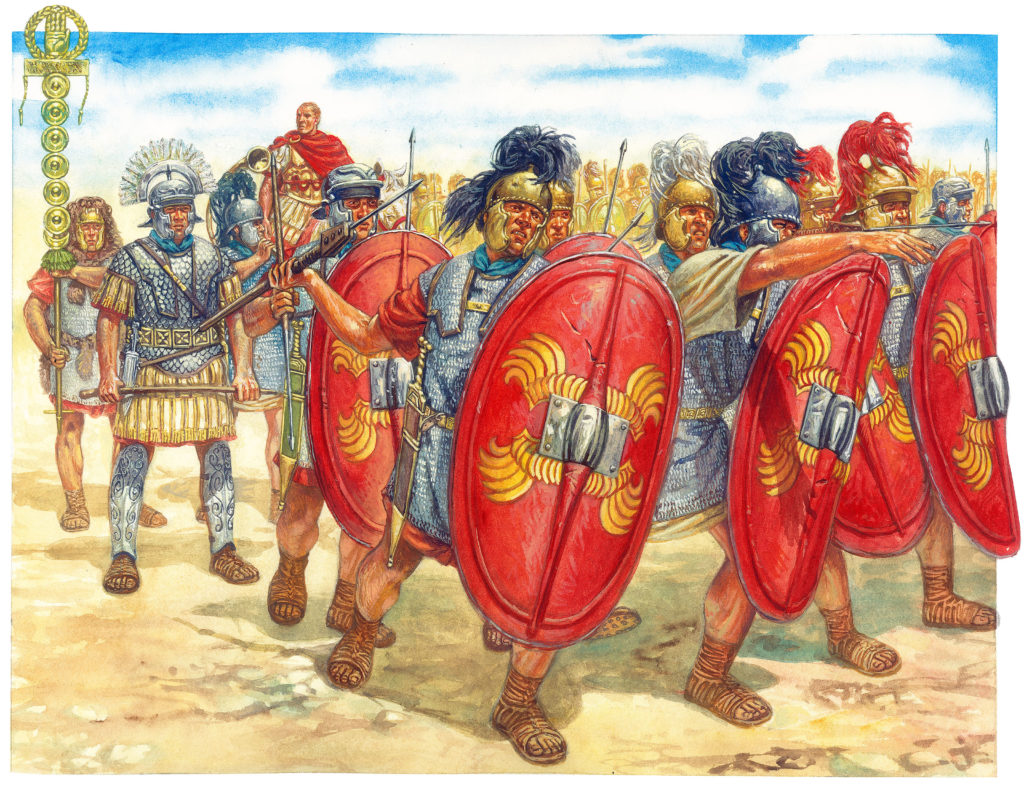
Convinced he could easily defeat Mithridates, and perhaps loath to share the glory of victory with Lucullus, Cotta rushed his own meager military force into combat with the vast Pontic army bearing down on him—a rash decision that ended with the utter rout of Roman forces at the Battle of Chalcedon. According to Plutarch, Cotta lost some 4,000 infantrymen and 60 ships and their crews before holing up with survivors in the fortified city. As the Pontic army and navy enveloped and besieged Chalcedon, Cotta could do little but look on impotently and send messengers to Lucullus, begging for relief.
Lucullus was presented with two options, and his choice illumines his character. With the Pontic army focused on its siege of Chalcedon, Roman officers pleaded with Lucullus to advance north into Pontus and conquer that rich kingdom. But he refused to abandon his fellow legionaries to a probable fate of death or slavery—or as Plutarch aptly put it, “He would not give the wild beasts the slip and stalk their empty lairs.”
Meanwhile, Mithridates left Chalcedon under siege and marched the bulk of his army west along the Propontis coast. It was then the true cost of Cotta’s recklessness became apparent, as each of the Bithynian coastal cities in turn either fell or capitulated to Mithridates. The lone holdout, far to the west, was Cyzicus. According to Appian, in the spring of 73 BC Mithridates encircled the fortified port with earthworks and blockaded the harbor with his fleet. He then had his men construct numerous siege engines, including a unique mechanical bridge that projected from two lashed-together quinqueremes (oar-driven galleys).
Despite Mithridates’ best efforts, the defenders held out long enough for Lucullus to arrive at the head of his legions. Their commander’s decision to relieve his besieged countrymen alienated his own rank and file, who bemoaned the lost opportunity to plunder undefended Pontus and feared they were marching to their own deaths. The odds were certainly not in their favor. Yet on first catching sight of the Pontic army at Cyzicus, Lucullus remained undeterred. He had a plan.
GET HISTORY’S GREATEST TALES—RIGHT IN YOUR INBOX
Subscribe to our HistoryNet Now! newsletter for the best of the past, delivered every Monday and Thursday.
Pursuit and Ambush
Realizing the futility of direct confrontation, but hoping to compel Mithridates to lift his siege, Lucullus resolved to disrupt his enemy’s supply lines. Encamping his army on a high point overlooking Cyzicus, the Roman commander deployed his legions at strategic chokepoints to deny the Pontic army food and resupply. Mithridates tried to convince the besieged Cyzicans the newly arrived army was his own reserve force, but a Roman messenger was able to swim around the siege lines, relate the truth and give defenders a ray of hope.
Faced with dwindling supplies, Mithridates decided to send his sick and wounded with the Pontic cavalry, whose horses were suffering, east to safety in Bithynia. Learning of their withdrawal, Lucullus led 10 cohorts (3,000–5,000 legionaries) in pursuit and ambushed the enemy column as it crossed the river Rhyndacus some 40 miles to the southeast. The slaughter was great, and the Romans captured some 15,000 men, 6,000 horses and the large baggage train. That dire loss, combined with the coming of winter and exhausted supplies, finally compelled Mithridates to abandon his siege. He returned home by sea, leaving his troops to make their way as best as they could west to their supply base at Lampsacus. Leaderless and weak from want of food, the remnant of the Pontic army fell prey to Lucullus at the confluence of the Aesepus and Granicus rivers, the Romans killing some 20,000 men and capturing many thousands more.
With the Pontic army utterly defeated, Lucullus slowly made his way east to Pontus, besieging and capturing cities en route. Meanwhile, Mithridates managed to raise another significant army. According to Appian, it numbered around 40,000 infantry and 4,000 cavalry.
In the spring of 72 BC Lucullus descended from the mountains into the Lycus river valley, where Mithridates and his troops were encamped. As the opposing armies maneuvered for position in the confines of the valley, they engaged in several inconclusive skirmishes. The stalemate ended after Pontic forces attacked an enemy foraging column only to suffer disastrous losses that emboldened the Romans. Correctly guessing Lucullus would follow up on this victory and assault the main Pontic camp, a panicked Mithridates began to evacuate his baggage and told his officers to do the same. Witnessing the evacuation of the officers and their baggage, the betrayed Pontic rank and file pounced on the fleeing officers, killing many and looting their baggage. In the ensuing chaos Mithridates barely managed to escape the onrushing Romans, who might have overtaken him had they not stopped to plunder his royal baggage train. Having lost two armies and his kingdom, Mithridates sought sanctuary in nearby Armenia, the kingdom of his son-in-law, Tigranes II—but not before sending a trusted eunuch back to Pontus to have his sisters, wives and concubines put to death.
Lopsided Victory
With Mithridates cowering in Armenia, Lucullus was free to subdue Pontus—which he did in short order. He was careful, however, to ingratiate himself with its populace by granting key municipalities free city (self-governing) status.
Lucullus knew the war with Pontus would grind on as long as Mithridates lived, and he demanded Tigranes hand over his fugitive father-in-law. When Tigranes refused, Lucullus made plans to invade Armenia. While Appian claimed Lucullus conducted the invasion with just two legions and 500 horse, many modern historians believe his army must have been significantly larger—possibly three or four legions with several thousand auxiliaries.
Leading his army east into Armenia in the spring of 69 BC, Lucullus crossed the Euphrates river and advanced on the capital of Tigranocerta. Taken by surprise, Tigranes sent a cavalry force to slow the Romans’ progress while he fell back to gather his army. Brushing aside the Armenian cavalry, Lucullus’ army encircled Tigranocerta and set about undermining its 80-foot-high walls. With the Romans thus occupied, Tigranes closed in on them with a large army. According to Appian, when the Armenian king sighted the Roman army, he said dismissively, “If they are here as ambassadors, they are too many; if as enemies, altogether too few.”
Accompanying Tigranes on the offensive, Mithridates cautioned against a direct attack. Instead, taking a page from Lucullus, Mithridates advised Tigranes to disrupt the enemy supply lines, as the Romans had done at Cyzicus. But Tigranes, the self-proclaimed “King of Kings,” brushed off Mithridates’ advice and ordered his cavalry to assault the Roman position.
On spotting the charging Armenian horse (including heavily armored cataphracts), Lucullus advanced his far smaller cavalry in front of his infantry to draw the attention of the enemy horsemen, then ordered them to feign a retreat up an intervening hill. Encouraged by their “rout” of the enemy, the Armenian cavalry pursued the Roman horsemen uphill, in the process wearying their mounts and losing unit cohesion. With the enemy cavalry distracted, Lucullus led his infantry around the hill to come at the Armenians from behind. Exhausted and surprised, the enemy horse came under attack from all sides. The surviving Armenian horsemen retreated through their own infantry, which in turn panicked and fled.
What happened next can only be described as a massacre, as the Romans pursued the remnant of the Armenian army for a dozen miles, killing every man they could catch. Exact losses at the battle of Tigranocerta are unknown, but estimates of Armenian casualties range between 10,000 and 100,000 men, while Roman losses may have only numbered in the hundreds. On learning of the lopsided outcome, the Greek inhabitants within Tigranocerta revolted against the Armenian garrison and opened the city gates to the Romans.
News from Rome
After the debacle at Tigranocerta, Tigranes and Mithridates fled north, gathering men to their cause. According to Appian, they managed to raise another army of some 70,000 infantry and half that many cavalry. In the summer of 68 BC Lucullus finally caught up to the defiant kings near Artaxata.
The Armenians had chosen a strong position. The infantry and some of the horse under Mithridates stood atop a hill, while Tigranes waited in ambush with the bulk of the cavalry. As Lucullus’ army approached, Tigranes attacked their foraging parties. After a sharp contest, the Romans routed the Armenian cavalry. Lucullus then advanced on Mithridates’ position, but the fugitive king fled to Pontus and reclaimed power before his adversary could come to grips with him. Meanwhile, Tigranes retreated into the Armenian interior and also resumed his throne.
It was at that inconclusive juncture Lucullus received disappointing news from Rome. Having accused him in absentia of prolonging the war for his own personal gain, his political enemies in the Senate had ordered the immediate disbandment of his army. On hearing of the Senate’s demands, many of his men—tired of the endless marching and fighting—deserted, claiming the senatorial decree had released them from service. In fact, they had never really cared for their commander’s strictness and his prohibitions against pillage and plunder.
The final blow for Lucullus came in 66 BC when Pompey arrived in Asia Minor with senatorial authority to take command of the legions, all of which duly swore allegiance to their new commander. Lucullus returned to Rome that year undoubtedly frustrated that total victory had been denied him just when it seemed within his grasp.
Well-earned Retirement
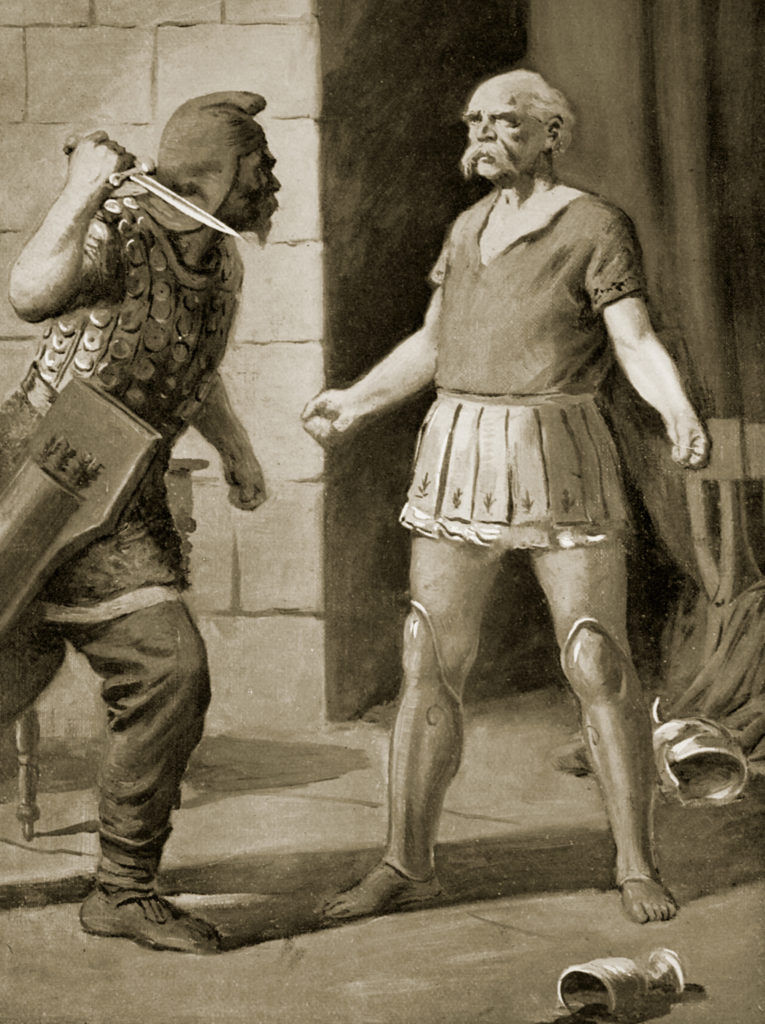
It didn’t take long for Pompey to finish what Lucullus had worked so hard to accomplish. Before the year was out he’d advanced into Armenia and compelled Tigranes to become a client king to Rome. Routed by Pompey that same year, Mithridates fled north across the Caucasus Mountains to Crimea, where he resumed his political machinations. After having one of his sons slain and facing a rebellion led by another, the exiled king of Pontus committed suicide in 63 BC. Having failed to poison himself due to his built-up immunity, he had a bodyguard dispatch him by sword.
The Mithridatic wars might have persisted for decades had it not been for Lucullus’ consistent, excellent generalship. In 73 BC Mithridates and Tigranes were the two most powerful kings in Asia Minor. Yet by 68 BC Lucullus, despite being outnumbered in every engagement, managed to dominate both powerful men. While Lucullus was in many ways similar to other great military leaders of his day, what distinguished him was his lack of desire for unbridled political power.
Given the breadth of the opposition arrayed against him at home, Lucullus chose to retire from public life and spent his remaining days living high off the immense wealth he’d amassed during his Asian campaigns. Well-read and educated, Lucullus arrogantly believed himself the smartest man in the room in most company. Perhaps he was right, as he died at peace in one of his luxurious villas, while the leading Roman commanders of his age—Crassus, Pompey and Caesar—all died violent, ghastly deaths.
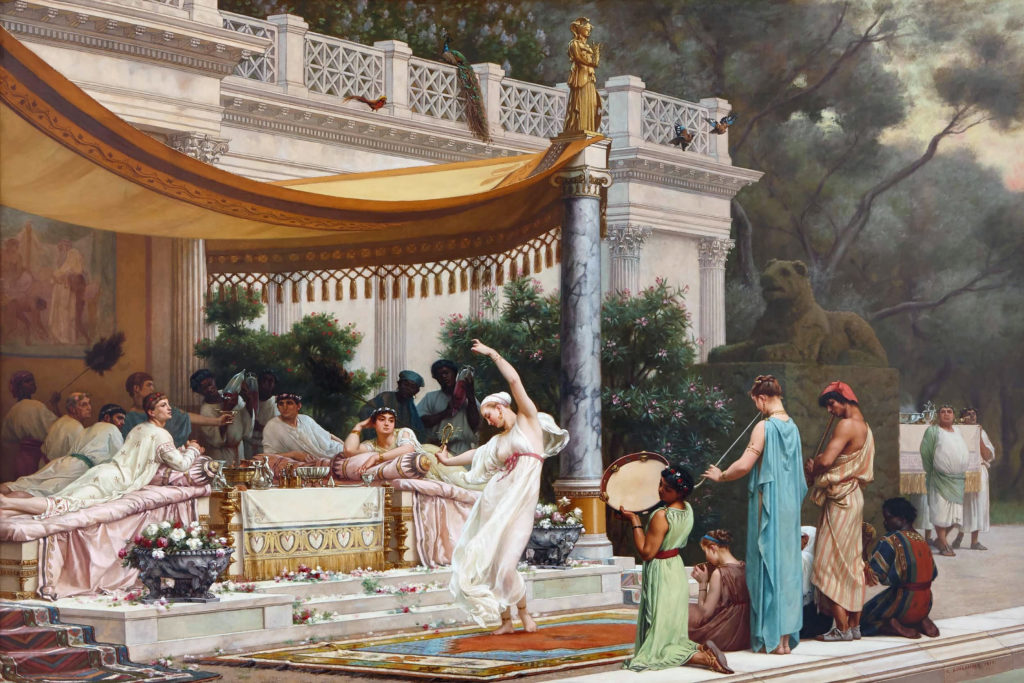
Matthew T. Beazley is a Georgia-based archaeologist and lifelong student of military history. For further reading he recommends The Foreign Wars, by Appian, and Parallel Lives, by Plutarch.

